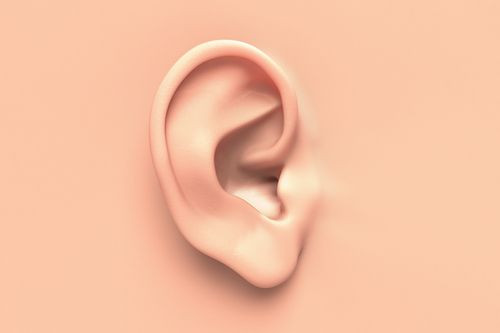Listen To This: 5 Things Your Ears Can Tell You About Your Health

From our lips to our nose to our ears, the human body can provide us with a plethora of clues when it comes to our health. Our ears are not only instruments of hearing that orchestrate sound waves in our ear canal and ear drum, they can also help us to tune in to serious health issues. If you look and listen closely, the appearance of our ears and what’s inside them provide an ultimate guide to our physical health.
1. Ear Crease
The appearance of our outer ear can provide a great wealth of knowledge when it comes to our heart health. A diagonal earlobe crease has been viewed as a potential indicator for coronary artery disease. A 1989 study published in the British Heart Journal found in over 300 bodies, the diagonal creases were associated with cardiovascular causes of death in men and women after age, height, and diabetes had been controlled for. Although researchers still remain unsure about how these two are connected, they suggest visible changes that are seen in tiny blood vessels of the ear could mimic similar changes in the blood vessels that cannot be seen around the heart.
Earlobe creases can also be a characteristic of Beckwith-Wiedemann syndrome. This condition affects many parts of the body and is classified as an overgrowth syndrome. According to the Genetics Home Reference, infants who are affected are considerably larger than normal and continue to grow and gain weight at an unusual rate during childhood.
2. Ear Wax
Ear wax is simply seen as another secretion from the human body that should be taken care of to prevent our ears from clogging. However, as we clean our ears, our Q-tip can actually reveal the specific odors from different races that can tell us about our own health. A 2009 study published in The FASEB Journal found that the variant of the gene ABCC11 — normally found in people of East Asian descent that causes odorous armpits and wet ear wax — is linked to an increased risk of breast cancer. “As it turns out, the type of earwax one has is linked to a gene that leads to bad odors from one’s armpit,” said Dr. Gerald Weissmann, editor-in-chief of the journal, according to Medical News Today. “These may become lifesaving clues to the early detection and treatment of breast cancer.”
It’s important to remember that having wet ear wax or strong smelly armpits does not mean a woman is bound to be diagnosed with breast cancer. The study suggests it is one factor that increases breast cancer risk. This risk may be present if it’s in tandem with something else, such as environmental factors.
3. Red Ears
Our ears can flare up in the heat of the moment and turn scorching red. However, red, flushed ears unrelated to bad tempers could indicate an adrenal insufficiency. The adrenal glands, which sit on top of your kidneys, are responsible for secreting the hormone adrenaline, which prepares the body to react in a stressful situation, says Medline Plus. An adrenal insufficiency could result in extremely low blood pressure (hypotension), weight loss, and kidney failure, among other health ailments. Red ears are a characteristic of adrenal fatigue.
Red ears could also be a sign of Red Ear Syndrome. This condition is characterized by one or both ears becoming extremely red and hot to the touch, with the appearance of the redness occurring in a matter of seconds, according to a 2013 article published in The Journal of Headache and Pain. The disorder is very rare, with approximately 100 published cases in medical literature.
4. Ringing Ears
A persistent ringing, whistling, buzzing, chirping, hissing, humming, roaring or even shrieking noise in the ears is commonly associated with the condition tinnitus. According to the Harvard Medical School Harvard Health Publications, the sound can come from one ear or both, from inside the head, or from a distance. Short-lived tinnitus can be induced by attending a loud concert or sporting event. However, if the symptoms last more than six months, this is a sign of chronic tinnitus. This condition rarely means you are going deaf or have a more serious health problem.
5. Small Ears
Small ears may be an attractive feature, but they could make you prone to eczema and kidney disease. A person with small ears most often has small ear canals, which gives them a greater probability of developing eczema of the ears, George Murty, consultant ear, nose, and throat surgeon at University Hospitals Leicester, told the Daily Mail. “Your ear canals are lined with skin and, just like skin on the outside of the body, it flakes off.”
Murty also noted a link between small ears — specifically the outer, visible ear called the auricle — and underdeveloped kidneys. A very low set of ears, below the level of your eyes, can indicate kidney problems. Murty said, “No one knows why, but you might lack one, have two fused together, or get kidney disease later in life.”
Remember to keep your eyes open regarding your ears to learn about your state of health.



























